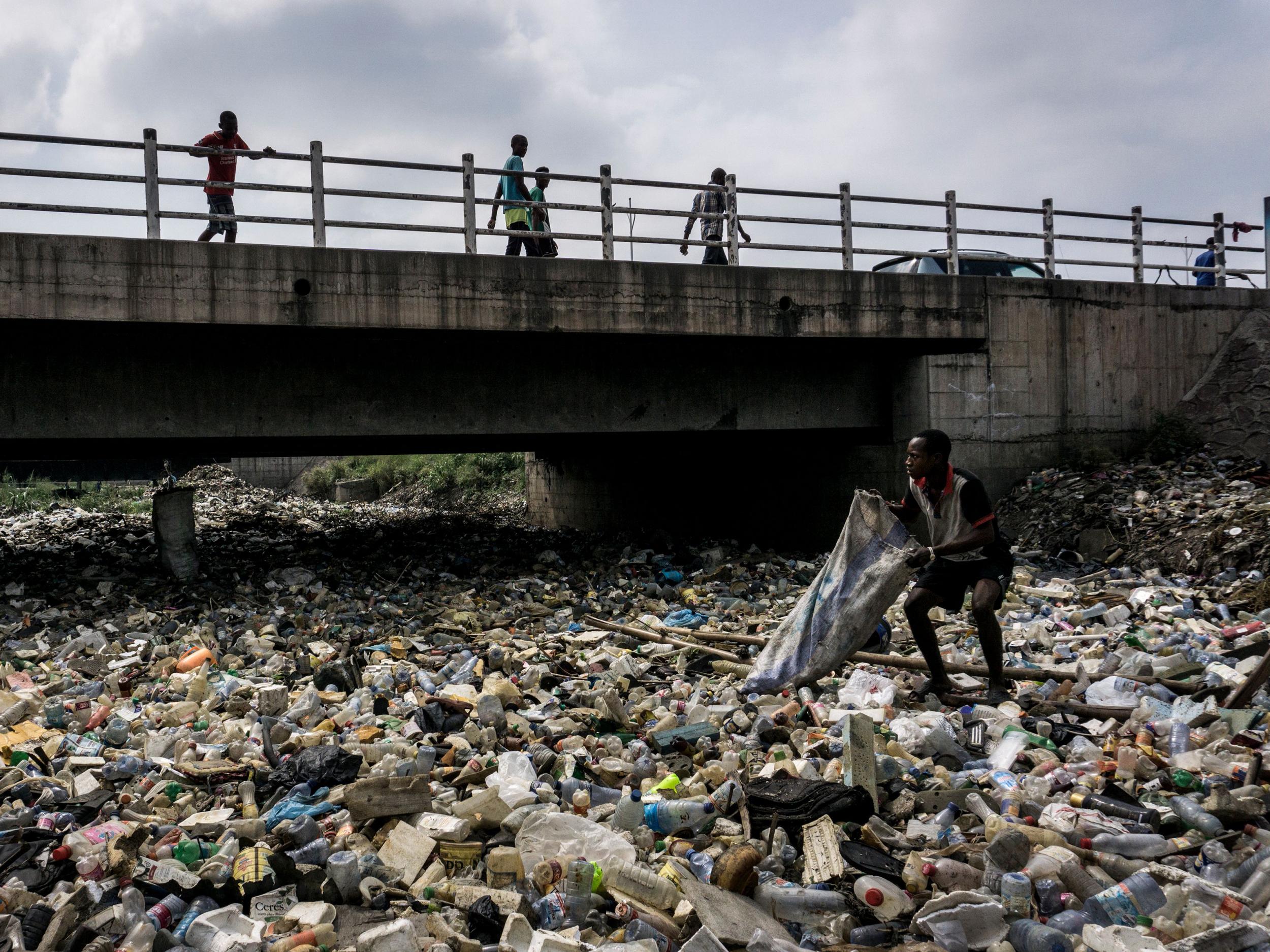World Environment Day: Planet is being ‘swamped’ by plastic waste, says UN chief
'If present trends continue, by 2050 our oceans will have more plastic than fish'

Plastic has been highlighted as one of the biggest environmental threats facing the world by the UN in a call to action issued to mark World Environment Day.
While emphasising the success of many international efforts to tackle plastic waste, the organisation described how the “scourge of plastic” has reached every corner of the Earth.
In a report billed as the most comprehensive yet to examine global government strategies against the “scourge”, UN experts called for concerted action to “beat plastic pollution”.
Levies and bans – of the kind already being rolled out for some plastic products in the UK – were found to be among the most effective strategies for dealing with the problem.
Presenting case studies from more than 60 countries, the UN analysis explored the different strategies being implemented and suggested measures that policymakers can take to curb the problem.
Bans on products such as styrofoam and plastic bags in parts of the world as diverse as New York City and Rwanda have proved highly effective.
The report found 30 per cent of the nations that had introduced restrictions on plastic bags had seen substantial declines in bag consumption in the first year following the action.
In April, data compiled by government scientists in the UK revealed that the number of plastic bags found on the seabeds around the country had declined in recent years – suggesting charges on supermarket carrier bags had helped stem their use.
Ministers have also considered the introduction of a similar “latte levy” to cut the use of disposable coffee cups.
However, the authors of the UN report warned that much more needs to be done, and called for cooperation from businesses and incentives that would encourage a more circular economy in which plastic is widely recycled.
The call follows a world-first “plastics pact” in which more than 40 major UK businesses pledged to eradicate single-use plastics from packaging in an effort to tackle the global pollution crisis.
In countries that have had less success in stemming the tide of plastic pollution, the two main issues highlighted were the lack of affordable alternative to plastics, and a failure to enforce effective strategies.
While acknowledging that every country has different problems when it comes to plastic production and waste management, the authors of the report suggested 10 universal steps that policymakers can follow.
These included calls for more eco-friendly alternatives to plastics and the promotion of reusable products.
“The assessment shows that action can be painless and profitable – with huge gains for people and the planet that help avert the costly downstream costs of pollution,” said Erik Solheim, head of UN Environment.
“Plastic isn’t the problem. It’s what we do with it.”
The report was launched in New Delhi to mark World Environment Day, an annual event held by the UN to raise awareness about environmental issues and promote action to tackle them.
To mark the occasion, United Nations secretary-general Antonio Guterres issued a statement in which he said “we all have a role to play in protecting our only home”.
Mr Guterres cited astonishing statistics, such as the number of microplastics in the ocean now outnumbering stars in the galaxy, and the eight million tons of plastic that end up in the seas and oceans every year.
“Our world is swamped by harmful plastic waste,” he said.
“From remote islands, to the Arctic, nowhere is untouched. If present trends continue, by 2050 our oceans will have more plastic than fish.”
Join our commenting forum
Join thought-provoking conversations, follow other Independent readers and see their replies
Comments
Bookmark popover
Removed from bookmarks